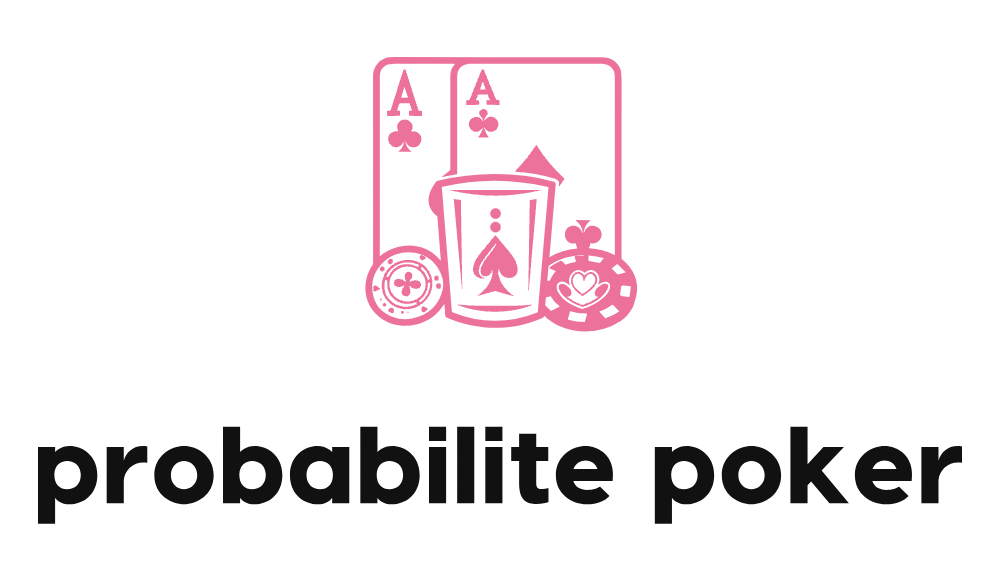In the thrilling world of poker, we are constantly seeking that winning edge, the one that will take our game from good to great. Together, we’ve experienced the highs of a well-timed bluff and the lows of a risky call gone wrong.
As we gather around the felt, the camaraderie and competition fuel our desire to master this intricate game. We understand that poker is not just about the cards in our hands, but about the strategies we employ and the mind games we play.
Over the years, we have collected invaluable insights and tips that have transformed our approach, helping us navigate the pressures and unpredictability that each hand brings.
In this article, we aim to share these great poker tips with you, our fellow enthusiasts, so we can:
- Elevate our skills
- Enjoy the satisfaction of a well-played game
Let’s delve into the nuances of poker and uncover the secrets to mastering it.
Understanding Hand Strength
Understanding Hand Strength
Understanding hand strength is crucial because it helps us make better decisions during the game. When we know our hand’s potential, we can confidently decide whether to raise, call, or fold. This knowledge is one of the great poker tips that keeps us connected with our fellow players, as we all aim to make strategic moves and enjoy the thrill of the game together.
The Language of Poker
In our poker community, knowing the ins and outs of hand rankings is like speaking a common language. We feel a sense of belonging when we recognize:
- The value of a royal flush
- The potential of a hidden straight
By mastering these hand strengths, we not only improve our own play but also contribute to the overall excitement and challenge of the game.
Beyond Memorizing Rankings
Understanding hand strength isn’t just about memorizing rankings; it’s about:
- Reading the board
- Adapting to the flow of the game
Together, we enhance our skills and share in the camaraderie of poker.
Reading Your Opponents
Reading our opponents is a vital skill that allows us to anticipate their moves and adjust our strategy accordingly. When we sit at the poker table, we’re not just playing our cards; we’re playing the people across from us.
Observing their behavior, expressions, and betting patterns gives us insights into their hand strength and potential bluffs. One of our great poker tips is to pay attention to how often our opponents bet or raise:
- Aggressive play might indicate confidence.
- Hesitation could suggest uncertainty.
Eye contact and body language are powerful tools. A glance away when the flop hits might tell us more than any bet could. By cultivating awareness of these subtle cues, we create an inclusive atmosphere where we feel connected to the ebb and flow of the game.
We’re all in this poker journey together, learning to read opponents and refining our strategies, making each game a shared experience.
Managing Your Bankroll Wisely
Successfully managing our bankroll is crucial to ensuring we can enjoy the game without risking financial strain. As part of our poker community, we all want to play smart and stay in the game longer.
One of the great poker tips we should embrace is setting a budget and sticking to it. By doing so, we can prevent impulsive decisions that might lead us astray.
Choose stakes that align with our bankroll. If we find ourselves constantly reaching for our wallets, it’s time to reassess our strategy. Consistency in bankroll management helps us avoid unnecessary stress and keeps us focused on honing our skills.
Track our wins and losses to gain a better understanding of our habits and adjust accordingly. This practice isn’t just about numbers; it’s about improving our game and financial management.
By sharing insights and experiences with our fellow players, we deepen our connection and grow together. Let’s keep these great poker tips in mind, ensuring our financial health and enjoyment of the game.
Mastering Positional Play
Understanding the importance of our position at the poker table can significantly enhance our strategic decisions and overall success. As a community of poker enthusiasts, we know that mastering positional play is one of those great poker tips that sets us apart. Let’s dive into why positioning matters.
When we’re in a later position:
- We have the advantage of observing our opponents’ actions before making our own decisions.
- This insight helps us gauge the strength of their hands.
- We can adjust our strategy accordingly.
Being in an early position demands caution:
- We act without much information.
- Playing conservatively often serves us best in this position.
Occupying the dealer button or the cutoff spot provides distinct advantages:
- It gives us the power to exert control.
- We can make more aggressive plays.
By recognizing and leveraging these positional nuances, we enhance our collective edge. Together, let’s embrace these great poker tips, ensuring our shared journey is both strategic and rewarding.
Utilizing Bluffing Techniques
Bluffing is a crucial strategy in poker that helps us deceive opponents and manipulate the game’s dynamics to our advantage. It’s not just about pretending to have a better hand; it’s about creating a story that our opponents believe.
Understanding the table’s atmosphere and our opponents’ tendencies is essential for making our bluffs convincing. By observing their reactions and patterns, we can identify when they’re vulnerable to a well-timed bluff.
Varying our bluffing techniques is one of the great poker tips we can employ. If we always bluff in the same situations, sharp players will catch on and counteract us. Instead, let’s mix up our strategies:
- Sometimes bluff with a strong hand to keep them guessing.
Timing is everything. Bluffing too frequently can make us predictable, but doing so sparingly adds an air of mystery to our gameplay.
Together, by mastering these bluffing techniques, we can enhance our poker experience and strengthen our sense of camaraderie at the table.
Practicing Patience and Discipline
In the game of poker, our success often hinges on our ability to practice patience and maintain discipline. When we sit at the table, it’s not just about the cards we hold, but also about the mindset we bring.
Patience is one of the great poker tips. We must remind ourselves that not every hand needs to be played. It’s essential to resist the urge to chase every pot and instead wait for the right opportunities. This patience is crucial in helping us make informed, strategic decisions.
Discipline goes hand in hand with patience. It’s about sticking to our game plan and not letting emotions dictate our actions. Whether experiencing the rush of a winning streak or the frustration of a bad beat, staying grounded is key.
By keeping our focus and not straying from our strategy, we can:
- Foster a sense of community among like-minded players.
- Value principles of patience and discipline.
- Elevate our game and enjoy the journey.
Together, these principles help us become better players and enhance our overall poker experience.
Developing a Solid Pre-Flop Strategy
To develop a solid pre-flop strategy, it’s essential to evaluate the strength of your starting hands and consider your position at the table. By sharing insights and experiences, we can elevate our game as a community of poker enthusiasts.
Recognizing Strong Starting Hands:
- High pairs
- Suited connectors
These hands give us an edge in the game.
Importance of Position:
Position is equally crucial. Acting later in the round allows us to make more informed decisions based on our opponents’ actions. By combining these elements, we can decide when to:
- Bet aggressively
- Fold wisely
Adjusting to Table Dynamics:
- At a tight table, exploit it by playing aggressively with good hands.
- At a loose table, patience and selectivity become our allies.
By incorporating these poker tips into our pre-flop strategy, we foster a sense of belonging and shared success at the poker table. Every decision becomes a step toward mastery.
Studying and Analyzing Your Game
To truly improve our poker skills, we must regularly study and analyze our gameplay to identify patterns and areas for growth. By reviewing past hands, we can pinpoint where our strategies shine or fall short. It’s essential to ask ourselves questions about our decision-making process: Did we play too aggressively or fold too soon? Recognizing these tendencies helps us adjust and refine our approach.
Utilize Software Tools:
- Use software tools to track statistics and outcomes.
- Analyze win rates and hand histories.
- Assess performance objectively.
Collaborate with Fellow Players:
- Share insights with fellow players.
- Discuss strategies and outcomes.
- Gain diverse perspectives to enhance understanding.
Leverage Poker Literature and Videos:
- Explore advanced strategies and expert advice.
- Deepen knowledge through various resources.
Together, through diligent study and collaboration, we become a stronger poker community.
How do online poker strategies differ from live poker strategies?
Online Poker Strategies vs. Live Poker Strategies
Online Poker:
- Reliance on Statistics: In online games, players often depend more on statistical analysis since physical tells are absent.
- Quick Decisions: The format allows for faster decision-making and the ability to play more hands per hour.
Live Poker:
- Observation of Opponents: Playing live provides opportunities to observe body language and behavior for additional clues.
- Social Aspect: There is an opportunity to build rapport and enjoy a social experience with other players.
Key Commonality:
- Adaptability and Skill: Both online and live poker require players to be adaptable and skillful to succeed.
What are some common psychological tells in poker that players often overlook?
We often overlook subtle psychological tells in poker that can give away valuable information. Breathing patterns, eye movements, and even how players handle their chips can reveal a lot about their hand strength or confidence level.
These cues may seem minor, but paying attention to them can provide crucial insights into our opponents’ mindset and help us make better decisions at the poker table.
Key psychological tells to observe:
-
Breathing Patterns: Changes in breathing can indicate nervousness or relaxation. Rapid breathing might suggest anxiety or bluffing, while calm breathing can indicate confidence.
-
Eye Movements: Avoiding eye contact or excessive blinking might suggest discomfort or bluffing. Steady eye contact can indicate confidence and a strong hand.
-
Chip Handling: Nervous or shaky handling of chips can indicate uncertainty or bluffing, while confident and smooth handling can suggest a strong hand.
By being mindful of these subtle tells, players can gain an advantage and improve their strategic decision-making in poker.
How can meditation or mindfulness practices benefit a poker player’s performance?
Mindfulness and meditation bring focus and calmness, sharpening our decision-making skills and emotional control.
They help us stay present at the poker table, making better reads and strategic moves. By incorporating these practices into our routine, we can enhance our performance and maintain a clear mind during intense moments.
It’s a powerful tool that allows us to navigate the complexities of the game with composure and confidence.
Conclusion
Congratulations on absorbing these valuable poker tips!
By focusing on the following aspects, you’re well on your way to mastering the game:
-
Understanding Hand Strength: Know the value of different hands and how they compare.
-
Reading Opponents: Observe their behavior and betting patterns to gain insights.
-
Managing Your Bankroll: Ensure you have enough funds to withstand the game’s swings.
-
Mastering Positional Play: Use your position at the table to make informed decisions.
-
Utilizing Bluffs: Employ strategic bluffs to mislead your opponents.
-
Practicing Patience: Wait for optimal hands and situations before making big moves.
-
Developing Your Pre-Flop Strategy: Decide which hands to play before the flop.
-
Studying Your Game: Analyze past games to identify areas for improvement.
Remember, success in poker is a journey that requires continuous learning and improvement. Keep honing your skills, staying disciplined, and embracing the strategic elements of the game.
Good luck at the tables!

